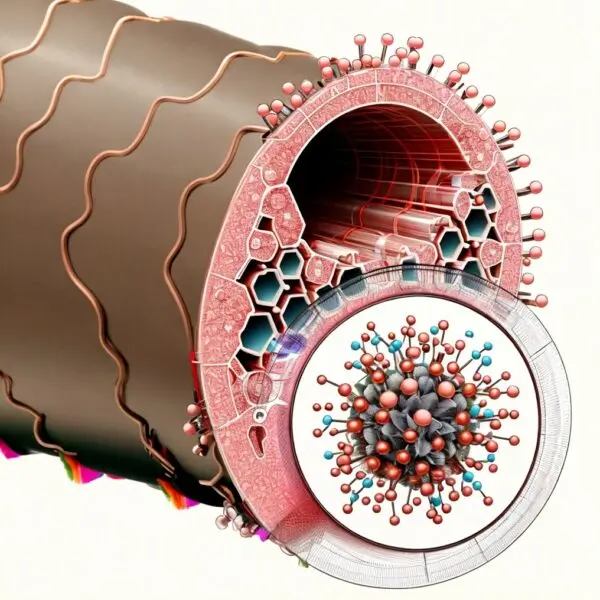In the realm of surgical procedures, the practice of preoperative shaving has been a long-standing tradition, often considered a preparatory standard. However, recent studies and analyses challenge this norm, suggesting that preoperative shaving may, in fact, elevate the risk of postoperative infections rather than reduce them. This article delves into the insights offered by several published studies on this topic, exploring the implications of shaving versus not shaving before surgical operations.
Historical Context and Evolving Perspectives: The tradition of preoperative shaving dates back to the late 18th century, rooted in the belief that hair removal from operative sites would promote quicker wound healing and avoid infection. The idea of hair removal around and area where a surgical incision was to be made seems logical. Scalp and body hair cleanliness was not really a priority in previous centuries, and the popularity of using oils and pomades for scalp hair was much higher as compared to today. It was also thought that preventing hair from getting entangled in sutures would aid in the healing process. However, this practice of pre-operative hair removal, largely based on empirical assumptions rather than scientific evidence, has come under scrutiny in recent decades.
A landmark study by Seropian and Reynolds in 1971 was among the first to critically evaluate this practice. Their findings indicated a stark contrast in wound infection rates between patients who underwent preoperative shaving and those who did not. Specifically in their study, they observed that wound infection rates were almost ten times higher in patients shaved with a razor compared to those who did not undergo any hair removal before surgery.
The Meta-Analysis Conclusions : Since the initial investigations in the 1970s and early 1980s, there have been quite a number of studies looking at the infection rates in patients after receiving an operation and recording whether their hair was shaved, cut, or removed with a depilatory cream before the operation. Indeed, so many surveys have been done that there are now publications where the data from multiple studies have been collected together and re-analysed to produce results based on the outcomes for several thousand patients. These studies involve data processing called “meta-analysis”.
A 2021 meta-analysis comprehensively reviewed numerous studies comparing the infection rates in patients undergoing preoperative shaving versus those who did not. This meta-analysis found a significant increase in postoperative wound infections in patients who were shaved prior to surgery. The data consistently showed higher infection rates in shaved patients, irrespective of the timing of shaving, whether it was immediately before surgery or the day prior. These results underscore the notion that preoperative shaving, rather than being a protective measure, may be a risk factor for postoperative wound infections. This compelling evidence advocates for a re-evaluation of current surgical practices, emphasizing the adoption of less invasive hair removal techniques or the complete avoidance of hair removal when not absolutely necessary for the procedure.
The meta-analysis article concludes that compared to not removing hair at all, there is likely little difference in the risk of surgical site infections when using clippers or depilatory cream for hair removal, although this finding is based on low-certainty evidence. However, there is moderate-certainty evidence suggesting that not removing hair results in fewer infections compared to shaving with a razor. If hair removal is necessary, using clippers or depilatory cream is likely to result in fewer infections and other complications than using a razor. Additionally, the study suggests that there might be a small reduction in surgical site infections when hair is removed on the day of surgery rather than the day before, further supporting the idea of minimizing hair removal and, if necessary, doing it in a manner that reduces the risk of infection.
The Correlation Between Shaving and Wound Infection: The correlation between preoperative shaving and increased risk of postoperative wound infections is primarily attributed to microtraumas caused by razors. Shaving often results in minute cuts and abrasions, sometimes too small to see with the naked eye, providing an ideal environment for bacterial colonization and subsequent infection. In contrast, leaving the operative site unshaved minimizes skin trauma, thereby reducing the risk of infection.
Additionally, the timing of shaving has been identified as a critical factor. Shaving immediately before surgery has been shown to result in lower infection rates compared to shaving a day before the procedure. This suggests that the shorter the duration between hair removal and surgery, the less chance bacteria has to invade and infect the traumatized skin.
Alternative Methods of Hair Removal: Sometimes, it is not feasible to avoid cutting the hair at the site of a surgical incision. Given the risks associated with traditional razor shaving, alternative methods of hair removal have been explored. Studies have compared the efficacy and safety of various methods such as safety razors, electric clippers, and depilatory agents.
Cutting hair with scissors or electric clippers is a preferred method over razor shaving in several investigations. This technique minimizes skin trauma as it doesn’t cause abrasions or micro-cuts that can serve as entry points for bacteria. Studies have shown that using clippers results in significantly lower rates of postoperative wound infections compared to razors. Clippers are especially recommended for their ease of use and safety, as they trim hair close to the skin without causing damage.
Depilatory creams offer a chemical method of hair removal. These creams typically contain ingredients like calcium thioglycolate, which break down the protein structure of hair, allowing it to be wiped away from the skin surface. This method eliminates the risk of cuts and abrasions associated with shaving. While generally safe, it is essential to test for potential allergic reactions prior to use in a surgical setting. The advantage of depilatory creams is their ability to remove hair without causing physical trauma to the skin, thereby reducing the risk of postoperative infections.
Surgeons’ Practices, Hospital Perspectives and Patient Perceptions: Despite the accumulating evidence against preoperative shaving, many surgeons continue to adhere to this practice, often influenced by traditional surgical norms and personal preferences. A survey conducted at Manchester Royal Infirmary and St Mary’s Hospital in Manchester in the United Kingdom revealed that a significant portion of surgeons were not up-to-date with the literature regarding preoperative depilation and its impact on postoperative wound infections.
It seems patients often expect to be shaved before surgery, with only a small percentage expressing any resentment towards this practice. Hospital policies also play a pivotal role in determining the approach to preoperative hair removal. The studies indicate that in many cases, shaving is performed as per hospital policy rather than individual surgical judgment, with a majority of hospitals conducting preoperative shaving the night before the operation. It seems that the idea of shaving to remove hair prior to surgery is a deeply ingrained notion at all levels, from the hospital administrators, to the doctors, and for the patients themselves.
Recommendations for Moving Forward: The evidence published in a variety of articles points towards a need for a paradigm shift in preoperative hair removal practices. Several published studies recommend that hair should only be removed from the operative site if it physically interferes with the surgical procedure. Otherwise, if it is not necessary to remove the hair, clean and sterilize the skin area and the hair. When hair removal is necessary, alternatives to shaving, such as depilatory agents, should be considered. Moreover, if shaving is unavoidable, the meta-analysis indicates it should ideally be done immediately before the operation to minimize the duration for any potential bacterial colonization.
Conclusions : Overall, it seems the tradition of preoperative shaving needs re-evaluation in light of contemporary evidence. Surgeons and medical staff should be educated about the risks associated with this practice and encouraged to adopt safer, more effective alternatives. By doing so, the medical community can take a significant step towards reducing the incidence of postoperative wound infections, enhancing patient care, and improving surgical outcomes.
Bibliography
11711645 {11711645:4T742NDA},{11711645:XE9HF6FP},{11711645:ACG9MXNP},{11711645:W2FXV7GU},{11711645:BUCPT2CG},{11711645:JE4CK7EN},{11711645:JB84EUBH},{11711645:R6CJRQKH},{11711645:EAUCXZ52},{11711645:RIKSXVDZ},{11711645:QWMJHQPQ} 1 vancouver 50 date asc 699 https://www.keratin.com/wp-content/plugins/zotpress/ %7B%22status%22%3A%22success%22%2C%22updateneeded%22%3Afalse%2C%22instance%22%3Afalse%2C%22meta%22%3A%7B%22request_last%22%3A0%2C%22request_next%22%3A0%2C%22used_cache%22%3Atrue%7D%2C%22data%22%3A%5B%7B%22key%22%3A%22R6CJRQKH%22%2C%22library%22%3A%7B%22id%22%3A11711645%7D%2C%22meta%22%3A%7B%22creatorSummary%22%3A%22Seropian%20and%20Reynolds%22%2C%22parsedDate%22%3A%221971-03%22%2C%22numChildren%22%3A0%7D%2C%22bib%22%3A%22%3Cdiv%20class%3D%5C%22csl-bib-body%5C%22%20style%3D%5C%22line-height%3A%201.35%3B%20%5C%22%3E%5Cn%20%20%3Cdiv%20class%3D%5C%22csl-entry%5C%22%20style%3D%5C%22clear%3A%20left%3B%20%5C%22%3E%5Cn%20%20%20%20%3Cdiv%20class%3D%5C%22csl-left-margin%5C%22%20style%3D%5C%22float%3A%20left%3B%20padding-right%3A%200.5em%3B%20text-align%3A%20right%3B%20width%3A%201em%3B%5C%22%3E1.%3C%5C%2Fdiv%3E%3Cdiv%20class%3D%5C%22csl-right-inline%5C%22%20style%3D%5C%22margin%3A%200%20.4em%200%201.5em%3B%5C%22%3ESeropian%20R%2C%20Reynolds%20BM.%20Wound%20infections%20after%20preoperative%20depilatory%20versus%20razor%20preparation.%20Am%20J%20Surg.%201971%20Mar%3B121%283%29%3A251%26%23x2013%3B4.%3C%5C%2Fdiv%3E%5Cn%20%20%20%3C%5C%2Fdiv%3E%5Cn%3C%5C%2Fdiv%3E%22%2C%22data%22%3A%7B%22itemType%22%3A%22journalArticle%22%2C%22title%22%3A%22Wound%20infections%20after%20preoperative%20depilatory%20versus%20razor%20preparation%22%2C%22creators%22%3A%5B%7B%22creatorType%22%3A%22author%22%2C%22firstName%22%3A%22R.%22%2C%22lastName%22%3A%22Seropian%22%7D%2C%7B%22creatorType%22%3A%22author%22%2C%22firstName%22%3A%22B.%20M.%22%2C%22lastName%22%3A%22Reynolds%22%7D%5D%2C%22abstractNote%22%3A%22%22%2C%22date%22%3A%221971-03%22%2C%22language%22%3A%22eng%22%2C%22DOI%22%3A%2210.1016%5C%2F0002-9610%2871%2990199-1%22%2C%22ISSN%22%3A%220002-9610%22%2C%22url%22%3A%22%22%2C%22collections%22%3A%5B%225ECFGTCM%22%5D%2C%22dateModified%22%3A%222023-12-24T16%3A54%3A44Z%22%7D%7D%2C%7B%22key%22%3A%22XE9HF6FP%22%2C%22library%22%3A%7B%22id%22%3A11711645%7D%2C%22meta%22%3A%7B%22creatorSummary%22%3A%22Bird%20et%20al.%22%2C%22parsedDate%22%3A%221984-10-24%22%2C%22numChildren%22%3A0%7D%2C%22bib%22%3A%22%3Cdiv%20class%3D%5C%22csl-bib-body%5C%22%20style%3D%5C%22line-height%3A%201.35%3B%20%5C%22%3E%5Cn%20%20%3Cdiv%20class%3D%5C%22csl-entry%5C%22%20style%3D%5C%22clear%3A%20left%3B%20%5C%22%3E%5Cn%20%20%20%20%3Cdiv%20class%3D%5C%22csl-left-margin%5C%22%20style%3D%5C%22float%3A%20left%3B%20padding-right%3A%200.5em%3B%20text-align%3A%20right%3B%20width%3A%201em%3B%5C%22%3E1.%3C%5C%2Fdiv%3E%3Cdiv%20class%3D%5C%22csl-right-inline%5C%22%20style%3D%5C%22margin%3A%200%20.4em%200%201.5em%3B%5C%22%3EBird%20BJ%2C%20Chrisp%20DB%2C%20Scrimgeour%20G.%20Extensive%20pre-operative%20shaving%3A%20a%20costly%20exercise.%20N%20Z%20Med%20J.%201984%20Oct%2024%3B97%28766%29%3A727%26%23x2013%3B9.%3C%5C%2Fdiv%3E%5Cn%20%20%20%3C%5C%2Fdiv%3E%5Cn%3C%5C%2Fdiv%3E%22%2C%22data%22%3A%7B%22itemType%22%3A%22journalArticle%22%2C%22title%22%3A%22Extensive%20pre-operative%20shaving%3A%20a%20costly%20exercise%22%2C%22creators%22%3A%5B%7B%22creatorType%22%3A%22author%22%2C%22firstName%22%3A%22B.%20J.%22%2C%22lastName%22%3A%22Bird%22%7D%2C%7B%22creatorType%22%3A%22author%22%2C%22firstName%22%3A%22D.%20B.%22%2C%22lastName%22%3A%22Chrisp%22%7D%2C%7B%22creatorType%22%3A%22author%22%2C%22firstName%22%3A%22G.%22%2C%22lastName%22%3A%22Scrimgeour%22%7D%5D%2C%22abstractNote%22%3A%22We%20studied%20the%20effect%20of%20pre-operative%20shaving%20on%20clean%20operation%20wound%20infection%20rates.%20The%20patients%20of%20a%20general%20surgeon%20were%20used%20in%20this%20study.%20There%20was%20a%20clean%20wound%20infection%20rate%20of%202.9%25%20when%20routine%20extensive%20pre-operative%20shaving%20was%20used%2C%20and%201.5%25%20during%20a%20period%20when%20shaving%20was%20not%20used.%20Other%20surgeons%27%20patients%20who%20were%20nursed%20under%20matched%20conditions%20had%20clean%20wound%20infection%20rates%20of%202.7%25%20and%201.3%25%20respectively%20during%20these%20periods.%20We%20suggest%20that%20no%20advantage%20in%20shaving%20patients%20can%20be%20demonstrated%20in%20terms%20of%20wound%20infection%20rates.%22%2C%22date%22%3A%221984-10-24%22%2C%22language%22%3A%22eng%22%2C%22DOI%22%3A%22%22%2C%22ISSN%22%3A%220028-8446%22%2C%22url%22%3A%22%22%2C%22collections%22%3A%5B%225ECFGTCM%22%5D%2C%22dateModified%22%3A%222023-12-24T16%3A50%3A33Z%22%7D%7D%2C%7B%22key%22%3A%22BUCPT2CG%22%2C%22library%22%3A%7B%22id%22%3A11711645%7D%2C%22meta%22%3A%7B%22creatorSummary%22%3A%22McIntyre%20and%20McCloy%22%2C%22parsedDate%22%3A%221994-01%22%2C%22numChildren%22%3A0%7D%2C%22bib%22%3A%22%3Cdiv%20class%3D%5C%22csl-bib-body%5C%22%20style%3D%5C%22line-height%3A%201.35%3B%20%5C%22%3E%5Cn%20%20%3Cdiv%20class%3D%5C%22csl-entry%5C%22%20style%3D%5C%22clear%3A%20left%3B%20%5C%22%3E%5Cn%20%20%20%20%3Cdiv%20class%3D%5C%22csl-left-margin%5C%22%20style%3D%5C%22float%3A%20left%3B%20padding-right%3A%200.5em%3B%20text-align%3A%20right%3B%20width%3A%201em%3B%5C%22%3E1.%3C%5C%2Fdiv%3E%3Cdiv%20class%3D%5C%22csl-right-inline%5C%22%20style%3D%5C%22margin%3A%200%20.4em%200%201.5em%3B%5C%22%3EMcIntyre%20FJ%2C%20McCloy%20R.%20Shaving%20patients%20before%20operation%3A%20a%20dangerous%20myth%3F%20Ann%20R%20Coll%20Surg%20Engl.%201994%20Jan%3B76%281%29%3A3%26%23x2013%3B4.%3C%5C%2Fdiv%3E%5Cn%20%20%20%3C%5C%2Fdiv%3E%5Cn%3C%5C%2Fdiv%3E%22%2C%22data%22%3A%7B%22itemType%22%3A%22journalArticle%22%2C%22title%22%3A%22Shaving%20patients%20before%20operation%3A%20a%20dangerous%20myth%3F%22%2C%22creators%22%3A%5B%7B%22creatorType%22%3A%22author%22%2C%22firstName%22%3A%22F.%20J.%22%2C%22lastName%22%3A%22McIntyre%22%7D%2C%7B%22creatorType%22%3A%22author%22%2C%22firstName%22%3A%22R.%22%2C%22lastName%22%3A%22McCloy%22%7D%5D%2C%22abstractNote%22%3A%22%22%2C%22date%22%3A%221994-01%22%2C%22language%22%3A%22eng%22%2C%22DOI%22%3A%22%22%2C%22ISSN%22%3A%220035-8843%22%2C%22url%22%3A%22%22%2C%22collections%22%3A%5B%225ECFGTCM%22%5D%2C%22dateModified%22%3A%222023-12-24T16%3A53%3A03Z%22%7D%7D%2C%7B%22key%22%3A%22EAUCXZ52%22%2C%22library%22%3A%7B%22id%22%3A11711645%7D%2C%22meta%22%3A%7B%22creatorSummary%22%3A%22Sheinberg%20and%20Ross%22%2C%22parsedDate%22%3A%221999-06%22%2C%22numChildren%22%3A0%7D%2C%22bib%22%3A%22%3Cdiv%20class%3D%5C%22csl-bib-body%5C%22%20style%3D%5C%22line-height%3A%201.35%3B%20%5C%22%3E%5Cn%20%20%3Cdiv%20class%3D%5C%22csl-entry%5C%22%20style%3D%5C%22clear%3A%20left%3B%20%5C%22%3E%5Cn%20%20%20%20%3Cdiv%20class%3D%5C%22csl-left-margin%5C%22%20style%3D%5C%22float%3A%20left%3B%20padding-right%3A%200.5em%3B%20text-align%3A%20right%3B%20width%3A%201em%3B%5C%22%3E1.%3C%5C%2Fdiv%3E%3Cdiv%20class%3D%5C%22csl-right-inline%5C%22%20style%3D%5C%22margin%3A%200%20.4em%200%201.5em%3B%5C%22%3ESheinberg%20MA%2C%20Ross%20DA.%20Cranial%20procedures%20without%20hair%20removal.%20Neurosurgery.%201999%20Jun%3B44%286%29%3A1263%26%23x2013%3B5%3B%20discussion%201265-1266.%3C%5C%2Fdiv%3E%5Cn%20%20%20%3C%5C%2Fdiv%3E%5Cn%3C%5C%2Fdiv%3E%22%2C%22data%22%3A%7B%22itemType%22%3A%22journalArticle%22%2C%22title%22%3A%22Cranial%20procedures%20without%20hair%20removal%22%2C%22creators%22%3A%5B%7B%22creatorType%22%3A%22author%22%2C%22firstName%22%3A%22M.%20A.%22%2C%22lastName%22%3A%22Sheinberg%22%7D%2C%7B%22creatorType%22%3A%22author%22%2C%22firstName%22%3A%22D.%20A.%22%2C%22lastName%22%3A%22Ross%22%7D%5D%2C%22abstractNote%22%3A%22OBJECTIVE%3A%20In%201992%2C%20Winston%20published%20the%20first%20large%20series%20of%20patients%20undergoing%20cranial%20neurosurgery%20without%20hair%20removal%20%28Winston%20KR%3A%20Hair%20and%20neurosurgery.%20Neurosurgery%2031%3A320-329%2C%201992%29.%20Prompted%20by%20this%20report%2C%20the%20senior%20author%20began%20a%20prospective%20trial%20in%201992%20of%20cranial%20neurosurgery%20without%20hair%20removal.%20METHODS%3A%20All%20patients%20undergoing%20elective%20cranial%20surgery%20were%20offered%20the%20opportunity%20to%20undergo%20surgery%20without%20hair%20removal.%20The%20protocol%20advocated%20by%20Winston%20was%20strictly%20followed%20in%20the%20first%20100%20patients%20but%20has%20subsequently%20been%20modified.%20Patients%20having%20only%20cranial%20procedures%20have%20their%20head%20prepared%20for%2010%20minutes%20with%20chlorhexidine%20and%20water%20followed%20by%20an%20isopropyl%20alcohol%20rinse.%20Patients%20having%20craniofacial%20procedures%20are%20prepared%20with%20iodophor.%20A%20single%20perioperative%20dose%20of%20prophylactic%20antibiotic%20is%20administered.%20RESULTS%3A%20We%20have%20performed%20346%20cranial%20operations%20without%20hair%20removal.%20These%20include%20craniotomy%20for%20tumor%2C%20trauma%2C%20and%20aneurysm%20%28n%20%3D%20115%29%3B%20epilepsy%20procedures%2C%20including%20depth%2C%20subdural%20strip%2C%20and%20grid%20electrode%20placement%2C%20lobectomy%2C%20and%20callosotomy%20%28n%20%3D%2095%29%3B%20functional%20procedures%2C%20including%20thalamotomy%2C%20pallidotomy%2C%20capsulotomy%2C%20and%20stereotactic%20biopsy%20%28n%20%3D%2084%29%3B%20ventriculoperitoneal%20shunts%20%28n%20%3D%208%29%3B%20brain%20abscess%20aspiration%20or%20resection%20%28n%20%3D%205%29%3B%20and%20miscellaneous%20other%20procedures%20%28n%20%3D%2010%29.%20Twenty-nine%20patients%20underwent%20cranial%20base%20procedures%20in%20conjunction%20with%20an%20otolaryngologist%20and%20had%20the%20alternate%20preparation.%20There%20have%20been%20no%20infections%20and%20no%20other%20complications%20associated%20with%20not%20removing%20hair.%20CONCLUSION%3A%20Cranial%20surgery%20without%20hair%20removal%20is%20safe%20and%20is%20not%20associated%20with%20a%20discernible%20increased%20risk%20of%20infection.%20There%20are%20simple%20techniques%20for%20keeping%20hair%20out%20of%20the%20wound.%20Patients%20are%20highly%20desirous%20of%20keeping%20their%20hair%20and%20react%20very%20positively%20to%20this%20option.%20We%20advocate%20a%20greater%20practice%20of%20this%20technique%20in%20neurosurgery.%22%2C%22date%22%3A%221999-06%22%2C%22language%22%3A%22eng%22%2C%22DOI%22%3A%2210.1097%5C%2F00006123-199906000-00054%22%2C%22ISSN%22%3A%221524-4040%22%2C%22url%22%3A%22%22%2C%22collections%22%3A%5B%225ECFGTCM%22%5D%2C%22dateModified%22%3A%222023-12-24T16%3A51%3A25Z%22%7D%7D%2C%7B%22key%22%3A%224T742NDA%22%2C%22library%22%3A%7B%22id%22%3A11711645%7D%2C%22meta%22%3A%7B%22creatorSummary%22%3A%22Amano%20et%20al.%22%2C%22parsedDate%22%3A%221999-10%22%2C%22numChildren%22%3A0%7D%2C%22bib%22%3A%22%3Cdiv%20class%3D%5C%22csl-bib-body%5C%22%20style%3D%5C%22line-height%3A%201.35%3B%20%5C%22%3E%5Cn%20%20%3Cdiv%20class%3D%5C%22csl-entry%5C%22%20style%3D%5C%22clear%3A%20left%3B%20%5C%22%3E%5Cn%20%20%20%20%3Cdiv%20class%3D%5C%22csl-left-margin%5C%22%20style%3D%5C%22float%3A%20left%3B%20padding-right%3A%200.5em%3B%20text-align%3A%20right%3B%20width%3A%201em%3B%5C%22%3E1.%3C%5C%2Fdiv%3E%3Cdiv%20class%3D%5C%22csl-right-inline%5C%22%20style%3D%5C%22margin%3A%200%20.4em%200%201.5em%3B%5C%22%3EAmano%20T%2C%20Inamura%20T%2C%20Inoha%20S%2C%20Shono%20T%2C%20Ikezaki%20K%2C%20Matsushima%20T%2C%20et%20al.%20%5BInfluence%20of%20scalp%20shaving%20on%20prevention%20of%20postoperative%20intracranial%20infection%5D.%20No%20Shinkei%20Geka.%201999%20Oct%3B27%2810%29%3A883%26%23x2013%3B8.%3C%5C%2Fdiv%3E%5Cn%20%20%20%3C%5C%2Fdiv%3E%5Cn%3C%5C%2Fdiv%3E%22%2C%22data%22%3A%7B%22itemType%22%3A%22journalArticle%22%2C%22title%22%3A%22%5BInfluence%20of%20scalp%20shaving%20on%20prevention%20of%20postoperative%20intracranial%20infection%5D%22%2C%22creators%22%3A%5B%7B%22creatorType%22%3A%22author%22%2C%22firstName%22%3A%22T.%22%2C%22lastName%22%3A%22Amano%22%7D%2C%7B%22creatorType%22%3A%22author%22%2C%22firstName%22%3A%22T.%22%2C%22lastName%22%3A%22Inamura%22%7D%2C%7B%22creatorType%22%3A%22author%22%2C%22firstName%22%3A%22S.%22%2C%22lastName%22%3A%22Inoha%22%7D%2C%7B%22creatorType%22%3A%22author%22%2C%22firstName%22%3A%22T.%22%2C%22lastName%22%3A%22Shono%22%7D%2C%7B%22creatorType%22%3A%22author%22%2C%22firstName%22%3A%22K.%22%2C%22lastName%22%3A%22Ikezaki%22%7D%2C%7B%22creatorType%22%3A%22author%22%2C%22firstName%22%3A%22T.%22%2C%22lastName%22%3A%22Matsushima%22%7D%2C%7B%22creatorType%22%3A%22author%22%2C%22firstName%22%3A%22J.%22%2C%22lastName%22%3A%22Mizoguchi%22%7D%2C%7B%22creatorType%22%3A%22author%22%2C%22firstName%22%3A%22M.%22%2C%22lastName%22%3A%22Fukui%22%7D%5D%2C%22abstractNote%22%3A%22Shaving%20of%20the%20whole%20scalp%20is%20ordinarily%20performed%20prior%20to%20neurosurgical%20operation.%20Although%20it%20is%20performed%20in%20order%20to%20prevent%20postoperative%20intracranial%20infection%2C%20there%20has%20been%20no%20apparent%20basis%20for%20this%20practice%20published%20in%20previous%20reports.%20We%20examined%20whether%20shaving%20the%20whole%20scalp%20reduced%20the%20rate%20of%20postoperative%20infection%20or%20not.%20We%20divided%20274%20cases%2C%20who%20received%20their%20first%20intracranial%20operation%20in%20the%20last%202%20years%2C%20into%20two%20groups%3B%20a%20whole%20shaving%20group%20and%20a%20partial%20shaving%20group.%20We%20compared%20the%20rate%20of%20postoperative%20intracranial%20infection%20between%20the%20two%20groups%20according%20to%20age%2C%20diagnosis%2C%20operation%2C%20operation%20time%20and%20placement%20of%20drainage.%20Overall%2C%2012%20cases%20out%20of%20274%20%284.38%25%29%20had%20postoperative%20intracranial%20infection.%20The%20long%20operation%20time%20and%20the%20long%20term%20placement%20of%20drainage%20mechanism%20increased%20the%20postoperative%20intracranial%20infection%20rate.%20There%20was%20no%20postoperative%20intracranial%20infection%20in%2074%20patients%20who%20received%20burr-hole%5C%2Ftwist-drill%20operation.%20As%20for%20craniotomy%5C%2Fcraniectomy%20operations%2C%207%20cases%20out%20of%2083%20%288.4%25%29%20in%20the%20partial%20scalp-shaving%20group%20whole%20scalp%20shaving%20group%20and%205%20cases%20out%20of%20117%20%284.2%25%29%20had%20postoperative%20intracranial%20infections.%20Thus%2C%20there%20was%20no%20significant%20difference%20in%20the%20rate%20of%20postoperative%20intracranial%20infection%20between%20the%20two%20groups%2C%20if%20anything%2C%20the%20whole%20scalp%20shaving%20group%20tended%20to%20show%20a%20higher%20rate.%20According%20to%20these%20results%2C%20partial%20scalp%20shaving%20did%20not%20increase%20the%20rate%20of%20postoperative%20intracranial%20infection.%20Considering%20that%20patients%20who%20have%20lost%20their%20hair%20find%20it%20embarrassing%20to%20return%20to%20society%2C%20it%20is%20well%20to%20know%20that%20the%20whole%20scalp%20shaving%20is%20not%20absolutely%20necessary%20for%20all%20first%20craniotomy.%22%2C%22date%22%3A%221999-10%22%2C%22language%22%3A%22jpn%22%2C%22DOI%22%3A%22%22%2C%22ISSN%22%3A%220301-2603%22%2C%22url%22%3A%22%22%2C%22collections%22%3A%5B%225ECFGTCM%22%5D%2C%22dateModified%22%3A%222023-12-24T16%3A51%3A50Z%22%7D%7D%2C%7B%22key%22%3A%22ACG9MXNP%22%2C%22library%22%3A%7B%22id%22%3A11711645%7D%2C%22meta%22%3A%7B%22creatorSummary%22%3A%22Gil%20et%20al.%22%2C%22parsedDate%22%3A%222003-01%22%2C%22numChildren%22%3A0%7D%2C%22bib%22%3A%22%3Cdiv%20class%3D%5C%22csl-bib-body%5C%22%20style%3D%5C%22line-height%3A%201.35%3B%20%5C%22%3E%5Cn%20%20%3Cdiv%20class%3D%5C%22csl-entry%5C%22%20style%3D%5C%22clear%3A%20left%3B%20%5C%22%3E%5Cn%20%20%20%20%3Cdiv%20class%3D%5C%22csl-left-margin%5C%22%20style%3D%5C%22float%3A%20left%3B%20padding-right%3A%200.5em%3B%20text-align%3A%20right%3B%20width%3A%201em%3B%5C%22%3E1.%3C%5C%2Fdiv%3E%3Cdiv%20class%3D%5C%22csl-right-inline%5C%22%20style%3D%5C%22margin%3A%200%20.4em%200%201.5em%3B%5C%22%3EGil%20Z%2C%20Cohen%20JT%2C%20Spektor%20S%2C%20Fliss%20DM.%20The%20role%20of%20hair%20shaving%20in%20skull%20base%20surgery.%20Otolaryngol%20Head%20Neck%20Surg.%202003%20Jan%3B128%281%29%3A43%26%23x2013%3B7.%3C%5C%2Fdiv%3E%5Cn%20%20%20%3C%5C%2Fdiv%3E%5Cn%3C%5C%2Fdiv%3E%22%2C%22data%22%3A%7B%22itemType%22%3A%22journalArticle%22%2C%22title%22%3A%22The%20role%20of%20hair%20shaving%20in%20skull%20base%20surgery%22%2C%22creators%22%3A%5B%7B%22creatorType%22%3A%22author%22%2C%22firstName%22%3A%22Ziv%22%2C%22lastName%22%3A%22Gil%22%7D%2C%7B%22creatorType%22%3A%22author%22%2C%22firstName%22%3A%22Jacob%20T.%22%2C%22lastName%22%3A%22Cohen%22%7D%2C%7B%22creatorType%22%3A%22author%22%2C%22firstName%22%3A%22Sergei%22%2C%22lastName%22%3A%22Spektor%22%7D%2C%7B%22creatorType%22%3A%22author%22%2C%22firstName%22%3A%22Dan%20M.%22%2C%22lastName%22%3A%22Fliss%22%7D%5D%2C%22abstractNote%22%3A%22OBJECTIVE%3A%20We%20sought%20to%20evaluate%20surgical%20wound%20infection%20rates%20in%20patients%20undergoing%20skull%20base%20surgery%20without%20hair%20removal.%5CnMETHODS%3A%20We%20undertook%20a%20retrospective%20study%20of%20175%20skull%20base%20operations%20performed%20without%20hair%20removal.%20Anterior%20operations%20were%20conducted%20via%20the%20subcranial%20approach%20%28n%20%3D%20120%29%20and%20lateral%20or%20posterior%20procedures%20via%20various%20approaches%20%28n%20%3D%2055%29.%20Wounds%20were%20examined%20daily%20during%20hospitalization%20and%20at%20routine%20outpatient%20follow-up%20%288%20to%2045%20months%29%20and%20classified%20according%20to%20the%20Center%20for%20Disease%20Control%20and%20Prevention%20guidelines.%5CnRESULTS%3A%20The%20overall%20surgical%20wound%20infection%20rate%20was%201.1%25%20%282%20of%20175%29%3A%200.8%25%20%281%20of%20120%29%20for%20anterior%20and%201.8%25%20%281%20of%2055%29%20for%20lateral%20or%20posterior%20procedures.%20It%20was%20similar%20for%20clean%20operations%20%28lateral%20and%20posterior%29%20and%20clean-contaminated%20%28anterior%29%20procedures%20and%20was%20less%20than%20or%20similar%20to%20the%20rates%20reported%20for%20skull%20base%20procedures%20with%20hair%20removal.%20No%20wound%20infection%20occurred%20among%20the%20infected%20%28trauma%2C%20fungal%20infections%2C%20and%20brain%20abscess%29%20patients.%5CnCONCLUSIONS%3A%20Skull%20base%20surgery%20without%20hair%20removal%20is%20safe%20and%20not%20associated%20with%20increased%20risk%20of%20wound%20infection.%20The%20method%20may%20prevent%20additional%20psychologic%20stress%2C%20promote%20restoration%20of%20the%20patient%27s%20self-image%2C%20and%20accelerate%20his%20or%20her%20return%20to%20normal%20life.%22%2C%22date%22%3A%222003-01%22%2C%22language%22%3A%22eng%22%2C%22DOI%22%3A%2210.1067%5C%2Fmhn.2003.14%22%2C%22ISSN%22%3A%220194-5998%22%2C%22url%22%3A%22%22%2C%22collections%22%3A%5B%225ECFGTCM%22%5D%2C%22dateModified%22%3A%222023-12-24T16%3A49%3A29Z%22%7D%7D%2C%7B%22key%22%3A%22QWMJHQPQ%22%2C%22library%22%3A%7B%22id%22%3A11711645%7D%2C%22meta%22%3A%7B%22creatorSummary%22%3A%22Tokimura%20et%20al.%22%2C%22parsedDate%22%3A%222009-12%22%2C%22numChildren%22%3A0%7D%2C%22bib%22%3A%22%3Cdiv%20class%3D%5C%22csl-bib-body%5C%22%20style%3D%5C%22line-height%3A%201.35%3B%20%5C%22%3E%5Cn%20%20%3Cdiv%20class%3D%5C%22csl-entry%5C%22%20style%3D%5C%22clear%3A%20left%3B%20%5C%22%3E%5Cn%20%20%20%20%3Cdiv%20class%3D%5C%22csl-left-margin%5C%22%20style%3D%5C%22float%3A%20left%3B%20padding-right%3A%200.5em%3B%20text-align%3A%20right%3B%20width%3A%201em%3B%5C%22%3E1.%3C%5C%2Fdiv%3E%3Cdiv%20class%3D%5C%22csl-right-inline%5C%22%20style%3D%5C%22margin%3A%200%20.4em%200%201.5em%3B%5C%22%3ETokimura%20H%2C%20Tajitsu%20K%2C%20Tsuchiya%20M%2C%20Yamahata%20H%2C%20Taniguchi%20A%2C%20Takayama%20K%2C%20et%20al.%20Cranial%20surgery%20without%20head%20shaving.%20J%20Craniomaxillofac%20Surg.%202009%20Dec%3B37%288%29%3A477%26%23x2013%3B80.%3C%5C%2Fdiv%3E%5Cn%20%20%20%3C%5C%2Fdiv%3E%5Cn%3C%5C%2Fdiv%3E%22%2C%22data%22%3A%7B%22itemType%22%3A%22journalArticle%22%2C%22title%22%3A%22Cranial%20surgery%20without%20head%20shaving%22%2C%22creators%22%3A%5B%7B%22creatorType%22%3A%22author%22%2C%22firstName%22%3A%22Hiroshi%22%2C%22lastName%22%3A%22Tokimura%22%7D%2C%7B%22creatorType%22%3A%22author%22%2C%22firstName%22%3A%22Kenichiro%22%2C%22lastName%22%3A%22Tajitsu%22%7D%2C%7B%22creatorType%22%3A%22author%22%2C%22firstName%22%3A%22Masahiro%22%2C%22lastName%22%3A%22Tsuchiya%22%7D%2C%7B%22creatorType%22%3A%22author%22%2C%22firstName%22%3A%22Hitoshi%22%2C%22lastName%22%3A%22Yamahata%22%7D%2C%7B%22creatorType%22%3A%22author%22%2C%22firstName%22%3A%22Ayumi%22%2C%22lastName%22%3A%22Taniguchi%22%7D%2C%7B%22creatorType%22%3A%22author%22%2C%22firstName%22%3A%22Kenji%22%2C%22lastName%22%3A%22Takayama%22%7D%2C%7B%22creatorType%22%3A%22author%22%2C%22firstName%22%3A%22Masatomo%22%2C%22lastName%22%3A%22Kaji%22%7D%2C%7B%22creatorType%22%3A%22author%22%2C%22firstName%22%3A%22Masashi%22%2C%22lastName%22%3A%22Hirabaru%22%7D%2C%7B%22creatorType%22%3A%22author%22%2C%22firstName%22%3A%22Takahisa%22%2C%22lastName%22%3A%22Hirayama%22%7D%2C%7B%22creatorType%22%3A%22author%22%2C%22firstName%22%3A%22Tomomi%22%2C%22lastName%22%3A%22Shinsato%22%7D%2C%7B%22creatorType%22%3A%22author%22%2C%22firstName%22%3A%22Kazunori%22%2C%22lastName%22%3A%22Arita%22%7D%5D%2C%22abstractNote%22%3A%22OBJECTIVE%3A%20Based%20on%20a%20series%20of%20632%20patients%20who%20underwent%20craniotomy%20without%20head%20shaving%2C%20we%20report%20the%20efficacy%20and%20safety%20of%20our%20simplified%20procedure%20and%20document%20the%20usefulness%20of%20the%20electrosurgical%20scalpel.%5CnMETHODS%3A%20After%20brushing%20a%20chlorhexidine-alcohol%20solution%20onto%20the%20craniotomy%20site%2C%20the%20hair%20was%20parted%20from%20the%20incision%20line%20and%20fixed%20with%20adhesive%20paper%20drapes.%20In%20recent%20cases%2C%20electrosurgical%20scalpels%20were%20used%20for%20scalp-%20and%20subcutaneous%20dissection.%20At%20the%20end%20of%20surgery%2C%20the%20wound%20was%20closed%20in%20the%20usual%20manner%2C%20taking%20care%20that%20no%20hair%20was%20in%20the%20wound%20and%20the%20hair%20and%20wound%20were%20rinsed%20with%20clean%20water%20in%20the%20operating%20room.%20We%20did%20not%20apply%20disinfectant%20for%20postoperative%20wound%20care%2C%20rather%2C%20the%20hair%20was%20shampooed%20on%20the%202nd%2C%204th%2C%20and%206th%20postoperative%20day.%5CnRESULTS%3A%20Among%20632%20patients%20who%20underwent%20cranial%20surgery%20without%20head%20shaving%2C%20only%207%20%281.1%25%29%20developed%20postoperative%20wound%20infections.%20None%20of%20the%2034%20patients%20who%20underwent%20craniotomy%20using%20the%20electrosurgical%20scalpel%20developed%20wound%20infections.%5CnCONCLUSIONS%3A%20Our%20simplified%20cranial%20surgery%20without%20head%20shaving%20does%20not%20increase%20the%20risk%20of%20wound%20infection.%20Because%20the%20use%20of%20the%20electrosurgical%20scalpel%20for%20skin%20and%20soft%20tissue%20dissection%20minimizes%20bleeding%2C%20the%20probability%20of%20wound%20infection%20appears%20to%20be%20reduced.%22%2C%22date%22%3A%222009-12%22%2C%22language%22%3A%22eng%22%2C%22DOI%22%3A%2210.1016%5C%2Fj.jcms.2009.06.003%22%2C%22ISSN%22%3A%221878-4119%22%2C%22url%22%3A%22%22%2C%22collections%22%3A%5B%225ECFGTCM%22%5D%2C%22dateModified%22%3A%222023-12-24T16%3A49%3A44Z%22%7D%7D%2C%7B%22key%22%3A%22JB84EUBH%22%2C%22library%22%3A%7B%22id%22%3A11711645%7D%2C%22meta%22%3A%7B%22creatorSummary%22%3A%22Sebastian%22%2C%22parsedDate%22%3A%222012-06%22%2C%22numChildren%22%3A0%7D%2C%22bib%22%3A%22%3Cdiv%20class%3D%5C%22csl-bib-body%5C%22%20style%3D%5C%22line-height%3A%201.35%3B%20%5C%22%3E%5Cn%20%20%3Cdiv%20class%3D%5C%22csl-entry%5C%22%20style%3D%5C%22clear%3A%20left%3B%20%5C%22%3E%5Cn%20%20%20%20%3Cdiv%20class%3D%5C%22csl-left-margin%5C%22%20style%3D%5C%22float%3A%20left%3B%20padding-right%3A%200.5em%3B%20text-align%3A%20right%3B%20width%3A%201em%3B%5C%22%3E1.%3C%5C%2Fdiv%3E%3Cdiv%20class%3D%5C%22csl-right-inline%5C%22%20style%3D%5C%22margin%3A%200%20.4em%200%201.5em%3B%5C%22%3ESebastian%20S.%20Does%20preoperative%20scalp%20shaving%20result%20in%20fewer%20postoperative%20wound%20infections%20when%20compared%20with%20no%20scalp%20shaving%3F%20A%20systematic%20review.%20J%20Neurosci%20Nurs.%202012%20Jun%3B44%283%29%3A149%26%23x2013%3B56.%3C%5C%2Fdiv%3E%5Cn%20%20%20%3C%5C%2Fdiv%3E%5Cn%3C%5C%2Fdiv%3E%22%2C%22data%22%3A%7B%22itemType%22%3A%22journalArticle%22%2C%22title%22%3A%22Does%20preoperative%20scalp%20shaving%20result%20in%20fewer%20postoperative%20wound%20infections%20when%20compared%20with%20no%20scalp%20shaving%3F%20A%20systematic%20review%22%2C%22creators%22%3A%5B%7B%22creatorType%22%3A%22author%22%2C%22firstName%22%3A%22Sherly%22%2C%22lastName%22%3A%22Sebastian%22%7D%5D%2C%22abstractNote%22%3A%22Preoperative%20scalp%20shaving%20has%20been%20a%20well-established%20practice%20among%20neurosurgeons%20based%20on%20the%20belief%20that%20hair%20removal%20prevents%20postoperative%20infections.%20Apart%20from%20aiding%20in%20improved%20visualization%20of%20the%20incision%20line%2C%20ease%20of%20closure%2C%20and%20dressing%20application%2C%20there%20are%20concerns%20that%20the%20presence%20of%20hair%20at%20the%20surgical%20site%20may%20interfere%20with%20the%20surgical%20procedure.%20Preoperative%20scalp%20shaving%20is%20a%20controversial%20practice%2C%20and%20many%20neurosurgeons%20are%20moving%20toward%20not%20removing%20any%20hair%20or%20clipping%20minimal%20hair%20along%20the%20incision%20line%20rather%20than%20shaving%20the%20scalp.%20The%20following%20is%20a%20systematic%20review%20of%20articles%20related%20to%20preoperative%20scalp%20shaving%20before%20cranial%20surgeries%20and%20the%20implications%20for%20postoperative%20wound%20infections.%20Eighteen%20articles%20were%20identified%20as%20potentially%20relevant%20based%20on%20the%20search%20criteria.%20These%20articles%20were%20selected%20based%20on%20the%20inclusion%20and%20exclusion%20criteria%20to%20provide%20concise%20background%20information%20and%20an%20explanation%20of%20scalp-shaving%20practices%20in%20neurosurgery%20leading%20to%20the%20clinical%20question%20posed.%20An%20evidence%20table%20was%20compiled%20to%20organize%20the%20study%20data%20and%20identify%20key%20points.%20The%20review%20brings%20strong%20evidence%20that%20preoperative%20scalp%20shaving%20does%20not%20confer%20any%20benefit%20against%20postoperative%20wound%20infection%20and%2C%20paradoxically%2C%20may%20lead%20to%20higher%20rates%20of%20infection.%20Because%20hair%20removal%20neither%20contributes%20benefits%20to%20the%20surgery%20itself%20nor%20decreases%20the%20risk%20of%20wound%20infection%20but%20has%20considerable%20cosmetic%20value%20for%20the%20patient%2C%20many%20of%20the%20authors%20recommended%20that%20cranial%20surgeries%20should%20be%20done%20without%20hair%20shaving.%22%2C%22date%22%3A%222012-06%22%2C%22language%22%3A%22eng%22%2C%22DOI%22%3A%2210.1097%5C%2FJNN.0b013e31825106d2%22%2C%22ISSN%22%3A%221945-2810%22%2C%22url%22%3A%22%22%2C%22collections%22%3A%5B%225ECFGTCM%22%5D%2C%22dateModified%22%3A%222023-12-24T16%3A50%3A02Z%22%7D%7D%2C%7B%22key%22%3A%22JE4CK7EN%22%2C%22library%22%3A%7B%22id%22%3A11711645%7D%2C%22meta%22%3A%7B%22creatorSummary%22%3A%22Oh%20et%20al.%22%2C%22parsedDate%22%3A%222018%22%2C%22numChildren%22%3A0%7D%2C%22bib%22%3A%22%3Cdiv%20class%3D%5C%22csl-bib-body%5C%22%20style%3D%5C%22line-height%3A%201.35%3B%20%5C%22%3E%5Cn%20%20%3Cdiv%20class%3D%5C%22csl-entry%5C%22%20style%3D%5C%22clear%3A%20left%3B%20%5C%22%3E%5Cn%20%20%20%20%3Cdiv%20class%3D%5C%22csl-left-margin%5C%22%20style%3D%5C%22float%3A%20left%3B%20padding-right%3A%200.5em%3B%20text-align%3A%20right%3B%20width%3A%201em%3B%5C%22%3E1.%3C%5C%2Fdiv%3E%3Cdiv%20class%3D%5C%22csl-right-inline%5C%22%20style%3D%5C%22margin%3A%200%20.4em%200%201.5em%3B%5C%22%3EOh%20WO%2C%20Yeom%20I%2C%20Kim%20DS%2C%20Park%20EK%2C%20Shim%20KW.%20Effect%20of%20Unshaven%20Hair%20with%20Absorbable%20Sutures%20and%20Early%20Postoperative%20Shampoo%20on%20Cranial%20Surgery%20Site%20Infection.%20Pediatr%20Neurosurg.%202018%3B53%281%29%3A18%26%23x2013%3B23.%3C%5C%2Fdiv%3E%5Cn%20%20%20%3C%5C%2Fdiv%3E%5Cn%3C%5C%2Fdiv%3E%22%2C%22data%22%3A%7B%22itemType%22%3A%22journalArticle%22%2C%22title%22%3A%22Effect%20of%20Unshaven%20Hair%20with%20Absorbable%20Sutures%20and%20Early%20Postoperative%20Shampoo%20on%20Cranial%20Surgery%20Site%20Infection%22%2C%22creators%22%3A%5B%7B%22creatorType%22%3A%22author%22%2C%22firstName%22%3A%22Won-Oak%22%2C%22lastName%22%3A%22Oh%22%7D%2C%7B%22creatorType%22%3A%22author%22%2C%22firstName%22%3A%22Insun%22%2C%22lastName%22%3A%22Yeom%22%7D%2C%7B%22creatorType%22%3A%22author%22%2C%22firstName%22%3A%22Dong-Seok%22%2C%22lastName%22%3A%22Kim%22%7D%2C%7B%22creatorType%22%3A%22author%22%2C%22firstName%22%3A%22Eun-Kyung%22%2C%22lastName%22%3A%22Park%22%7D%2C%7B%22creatorType%22%3A%22author%22%2C%22firstName%22%3A%22Kyu-Won%22%2C%22lastName%22%3A%22Shim%22%7D%5D%2C%22abstractNote%22%3A%22BACKGROUND%3A%20Cranial%20surgical%20site%20infection%20is%20a%20significant%20cause%20of%20morbidity%20and%20mortality%20in%20hospitals.%20Preoperative%20hair%20shaving%20for%20cranial%20neurosurgical%20procedures%20is%20performed%20traditionally%20in%20an%20attempt%20to%20protect%20patients%20against%20complications%20from%20infections%20at%20cranial%20surgical%20sites.%20However%2C%20preoperative%20shaving%20of%20surgical%20incision%20sites%20using%20traditional%20surgical%20blades%20without%20properly%20washing%20the%20head%20after%20surgery%20can%20cause%20infections%20at%20surgical%20sites.%20Therefore%2C%20a%20rapid%20protocol%20in%20which%20the%20scalp%20remains%20unshaven%20and%20absorbable%20sutures%20are%20used%20for%20scalp%20closure%20with%20early%20postoperative%20shampooing%20is%20examined%20in%20this%20study.%5CnMETHODS%3A%20A%20retrospective%20comparative%20study%20was%20conducted%20from%20January%202008%20to%20December%202012.%20A%20total%20of%202%2C641%20patients%20who%20underwent%20unshaven%20cranial%20surgery%20with%20absorbable%20sutures%20for%20scalp%20closure%20were%20enrolled%20in%20this%20study.%20Data%20of%201%2C882%20patients%20who%20underwent%20surgery%20with%20the%20traditional%20protocol%20from%20January%202005%20to%20December%202007%20were%20also%20analyzed%20for%20comparison.%5CnRESULTS%3A%20Of%202%2C641%20patients%20who%20underwent%20cranial%20surgery%20with%20the%20rapid%20protocol%2C%20all%20but%202%20%280.07%25%29%20patients%20experienced%20satisfactory%20wound%20healing.%20Of%201%2C882%20patients%20who%20underwent%20cranial%20surgery%20with%20the%20traditional%20protocol%2C%203%20patients%20%280.15%25%29%20had%20infections.%20Each%20infection%20occurred%20at%20the%20superficial%20incisional%20surgical%20site.%5CnCONCLUSION%3A%20Unshaven%20cranial%20surgery%20using%20absorbable%20sutures%20for%20scalp%20closure%20with%20early%20postoperative%20shampooing%20is%20safe%20and%20effective%20in%20the%20cranial%20neurosurgery%20setting.%20This%20protocol%20has%20a%20positive%20psychological%20effect.%20It%20can%20help%20patients%20accept%20neurosurgical%20procedures%20and%20improve%20their%20self-image%20after%20the%20operation.%22%2C%22date%22%3A%222018%22%2C%22language%22%3A%22eng%22%2C%22DOI%22%3A%2210.1159%5C%2F000481437%22%2C%22ISSN%22%3A%221423-0305%22%2C%22url%22%3A%22%22%2C%22collections%22%3A%5B%225ECFGTCM%22%5D%2C%22dateModified%22%3A%222023-12-24T16%3A52%3A08Z%22%7D%7D%2C%7B%22key%22%3A%22RIKSXVDZ%22%2C%22library%22%3A%7B%22id%22%3A11711645%7D%2C%22meta%22%3A%7B%22creatorSummary%22%3A%22Tanner%20and%20Melen%22%2C%22parsedDate%22%3A%222021-08-26%22%2C%22numChildren%22%3A0%7D%2C%22bib%22%3A%22%3Cdiv%20class%3D%5C%22csl-bib-body%5C%22%20style%3D%5C%22line-height%3A%201.35%3B%20%5C%22%3E%5Cn%20%20%3Cdiv%20class%3D%5C%22csl-entry%5C%22%20style%3D%5C%22clear%3A%20left%3B%20%5C%22%3E%5Cn%20%20%20%20%3Cdiv%20class%3D%5C%22csl-left-margin%5C%22%20style%3D%5C%22float%3A%20left%3B%20padding-right%3A%200.5em%3B%20text-align%3A%20right%3B%20width%3A%201em%3B%5C%22%3E1.%3C%5C%2Fdiv%3E%3Cdiv%20class%3D%5C%22csl-right-inline%5C%22%20style%3D%5C%22margin%3A%200%20.4em%200%201.5em%3B%5C%22%3ETanner%20J%2C%20Melen%20K.%20Preoperative%20hair%20removal%20to%20reduce%20surgical%20site%20infection.%20Cochrane%20Database%20Syst%20Rev.%202021%20Aug%2026%3B8%288%29%3ACD004122.%3C%5C%2Fdiv%3E%5Cn%20%20%20%3C%5C%2Fdiv%3E%5Cn%3C%5C%2Fdiv%3E%22%2C%22data%22%3A%7B%22itemType%22%3A%22journalArticle%22%2C%22title%22%3A%22Preoperative%20hair%20removal%20to%20reduce%20surgical%20site%20infection%22%2C%22creators%22%3A%5B%7B%22creatorType%22%3A%22author%22%2C%22firstName%22%3A%22Judith%22%2C%22lastName%22%3A%22Tanner%22%7D%2C%7B%22creatorType%22%3A%22author%22%2C%22firstName%22%3A%22Kate%22%2C%22lastName%22%3A%22Melen%22%7D%5D%2C%22abstractNote%22%3A%22BACKGROUND%3A%20Hair%20has%20traditionally%20been%20removed%20from%20the%20surgical%20site%20before%20surgery%3B%20however%2C%20some%20studies%20claim%20that%20this%20increases%20surgical%20site%20infections%20%28SSIs%29%20and%20should%20be%20avoided.%20This%20is%20the%20second%20update%20of%20a%20review%20published%20in%202006%20and%20first%20updated%20in%202011.%5CnOBJECTIVES%3A%20To%20determine%20whether%20routine%20preoperative%20hair%20removal%20%28compared%20with%20no%20removal%29%20and%20the%20method%2C%20timing%2C%20or%20setting%20of%20hair%20removal%20effect%20SSI%20rates.%5CnSEARCH%20METHODS%3A%20In%20November%202019%2C%20for%20this%20second%20update%20we%20searched%20the%20Cochrane%20Wounds%20Specialised%20Register%3B%20the%20Cochrane%20Central%20Register%20of%20Controlled%20Trials%20%28CENTRAL%29%20%28the%20Cochrane%20Library%29%3B%20Ovid%20MEDLINE%20%28including%20In-Process%20%26%20Other%20Non-Indexed%20Citations%29%3B%20Ovid%20Embase%3B%20and%20EBSCO%20CINAHL%20Plus.%20We%20also%20searched%20clinical%20trial%20registries%20for%20ongoing%20and%20unpublished%20studies%2C%20and%20scanned%20the%20reference%20lists%20of%20included%20studies%20plus%20reviews%20to%20identify%20additional%20studies.%20We%20applied%20no%20date%20or%20language%20restrictions.%5CnSELECTION%20CRITERIA%3A%20We%20included%20randomised%20controlled%20trials%20or%20quasi-randomised%20trials%20that%20compared%3A%20%5Cu00b7%20hair%20removal%20with%20no%20hair%20removal%3B%20%5Cu00b7%20different%20methods%20of%20hair%20removal%3B%20and%20%5Cu00b7%20hair%20removal%20at%20different%20times%20before%20surgery.%5CnDATA%20COLLECTION%20AND%20ANALYSIS%3A%20Two%20review%20authors%20independently%20assessed%20the%20relevance%20of%20each%20study.%20Data%20were%20extracted%20independently%20by%20both%20review%20authors%20and%20cross-checked.%20We%20carried%20out%20%27Risk%20of%20bias%27%20assessment%20using%20the%20Cochrane%20%27Risk%20of%20bias%27%20tool%20and%20assessed%20the%20certainty%20of%20evidence%20according%20to%20GRADE.%20Sensitivity%20analyses%20excluding%20studies%20at%20high%20risk%20of%20bias%20were%20conducted.%5CnMAIN%20RESULTS%3A%20We%20included%2011%20new%20studies%20in%20this%20update%20resulting%20in%20a%20total%20of%2019%20randomised%20and%206%20quasi-randomised%20trials%20%288919%20participants%29.%20Clipping%20compared%20with%20no%20hair%20removal%20Low%20certainty%20evidence%20suggests%20there%20may%20be%20little%20difference%20in%20risk%20of%20SSI%20when%20no%20hair%20removal%20is%20compared%20with%20hair%20removal%20using%20clippers%20%28risk%20ratio%20%28RR%29%200.95%2C%2095%25%20confidence%20interval%20%28CI%29%200.65%20to%201.39%3B%20three%20studies%20with%201733%20participants%29.%20Shaving%20with%20a%20razor%20compared%20with%20no%20hair%20removal%20Moderate%20certainty%20evidence%20suggests%20the%20risk%20of%20SSI%20is%20probably%20increased%20in%20participants%20who%20have%20hair%20removal%20with%20a%20razor%20compared%20with%20no%20removal%20%28RR%201.82%2C%2095%25%20CI%201.05%20to%203.14%3B%20seven%20studies%20with%201706%20participants%29.%20In%20terms%20of%20absolute%20risk%20this%20represents%2017%20more%20SSIs%20per%201000%20in%20the%20razor%20group%20compared%20with%20the%20no%20hair%20removal%20group%20%2895%25%20CI%201%20more%20to%2045%20more%20SSI%20in%20the%20razor%20group%29.%20Based%20on%20low-certainty%20evidence%2C%20it%20is%20unclear%20whether%20there%20is%20a%20difference%20in%20stitch%20abscesses%20between%20hair%20removal%20with%20a%20razor%20and%20no%20hair%20removal%20%281%20trial%20with%2080%20participants%3B%20RR%201.00%2C%2095%25%20CI%200.21%20to%204.66%29.%20Based%20on%20narrative%20data%20from%20one%20trial%20with%20136%20participants%2C%20there%20may%20be%20little%20difference%20in%20length%20of%20hospital%20stay%20between%20participants%20having%20hair%20removed%20with%20a%20razor%20compared%20with%20those%20having%20no%20hair%20removal%20%28low-certainty%20evidence%29.%20Based%20on%20narrative%20data%20from%20one%20trial%20with%20278%20participants%2C%20it%20is%20uncertain%20whether%20there%20is%20a%20difference%20in%20cost%20between%20participants%20having%20hair%20removed%20by%20shaving%20with%20a%20razor%20compared%20with%20no%20hair%20removal%20%28very%20low%20certainty%20evidence%29.%20Depilatory%20cream%20compared%20with%20no%20hair%20removal%20Low%20certainty%20evidence%20suggests%20there%20may%20be%20little%20difference%20in%20SSI%20risk%20between%20depilatory%20cream%20or%20no%20hair%20removal%2C%20although%20there%20are%20were%20wide%20confidence%20intervals%20around%20the%20point%20estimate%20that%20included%20benefit%20and%20harm%20%28RR%201.02%2C%2095%25%20CI%200.45%20to%202.31%3B%20low-certainty%20evidence%3B%201%20trial%20with%20267%20participants%29.%20Based%20on%20narrative%20data%20from%20one%20trial%20with%20267%20participants%2C%20it%20is%20uncertain%20whether%20there%20is%20a%20difference%20in%20cost%20between%20participants%20having%20hair%20removed%20with%20depilatory%20cream%20compared%20with%20no%20hair%20removal%20%28very%20low%20certainty%20evidence%29.%20Shaving%20with%20a%20razor%20compared%20with%20clipping%20Moderate-certainty%20evidence%20from%207%20studies%20with%203723%20participants%20suggests%20the%20risk%20of%20SSI%20is%20probably%20increased%20by%20shaving%20with%20a%20razor%20compared%20with%20clipping%20%28RR%201.64%2C%2095%25%20CI%201.16%20to%202.33%29.%20Moderate-certainty%20evidence%20suggests%20the%20risk%20of%20skin%20injury%20is%20probably%20increased%20in%20people%20who%20have%20hair%20removal%20with%20a%20razor%20rather%20than%20clipping%20%283%20trials%20with%201333%20participants%3B%20RR%201.74%2C%20CI%2095%25%201.12%20to%202.71%29.%20Shaving%20with%20a%20razor%20compared%20with%20depilatory%20cream%20Moderate-certainty%20evidence%20from%209%20studies%20with%201593%20participants%20suggests%20there%20is%20probably%20more%20SSI%20risk%20when%20razors%20are%20used%20compared%20with%20depilatory%20cream%20%28RR%202.28%2C%2095%25%20CI%201.12%20to%204.65%29.%20Low-certainty%20evidence%20suggests%20the%20risk%20of%20skin%20injury%20may%20be%20increased%20when%20using%20a%20razor%20rather%20than%20depilatory%20cream%20for%20hair%20removal%20%28RR%206.95%2C%20CI%2095%25%203.45%20to%2013.98%3B%205%20trials%20with%20937%20participants%29.%20Based%20on%20narrative%20data%20from%20three%20trials%20with%20402%20participants%2C%20it%20is%20uncertain%20whether%20depilatory%20cream%20is%20more%20expensive%20than%20shaving%20%28very%20low%20certainty%20evidence%29.%20Hair%20removal%20on%20the%20day%20of%20surgery%20compared%20with%20one-day%20preoperatively%20Low-certainty%20evidence%20suggests%20that%20there%20may%20be%20a%20small%20reduction%20in%20SSI%20risk%20when%20hair%20is%20removed%20on%20the%20day%20of%20surgery%20compared%20with%20the%20day%20before%20surgery%20although%20there%20are%20were%20wide%20confidence%20intervals%20around%20the%20point%20estimate%20that%20included%20benefit%20and%20harm%20%28one%20trial%2C%20977%20participants%3B%20RR%200.83%2C%2095%25%20CI%200.54%20to%201.30%29.%5CnAUTHORS%27%20CONCLUSIONS%3A%20Compared%20with%20no%20hair%20removal%2C%20there%20may%20be%20little%20difference%20in%20risk%20of%20SSI%20when%20clippers%20or%20depilatory%20cream%20are%20used%20%28low-certainty%20evidence%29.%20However%2C%20there%20are%20probably%20fewer%20SSIs%20when%20hair%20is%20not%20removed%20compared%20with%20shaving%20with%20a%20razor%20%28moderate-certainty%20evidence%29.%20If%20hair%20has%20to%20be%20removed%2C%20moderate-certainty%20evidence%20suggests%20using%20clippers%20or%20depilatory%20cream%20probably%20results%20in%20fewer%20SSIs%20and%20other%20complications%20compared%20with%20shaving%20using%20a%20razor.%20There%20may%20be%20a%20small%20reduction%20in%20SSIs%20when%20hair%20is%20removed%20on%20the%20day%20of%2C%20rather%20than%20the%20day%20before%2C%20surgery.%22%2C%22date%22%3A%222021-08-26%22%2C%22language%22%3A%22eng%22%2C%22DOI%22%3A%2210.1002%5C%2F14651858.CD004122.pub5%22%2C%22ISSN%22%3A%221469-493X%22%2C%22url%22%3A%22%22%2C%22collections%22%3A%5B%225ECFGTCM%22%5D%2C%22dateModified%22%3A%222023-12-24T16%3A50%3A48Z%22%7D%7D%2C%7B%22key%22%3A%22W2FXV7GU%22%2C%22library%22%3A%7B%22id%22%3A11711645%7D%2C%22meta%22%3A%7B%22creatorSummary%22%3A%22Liu%20et%20al.%22%2C%22parsedDate%22%3A%222022-07%22%2C%22numChildren%22%3A0%7D%2C%22bib%22%3A%22%3Cdiv%20class%3D%5C%22csl-bib-body%5C%22%20style%3D%5C%22line-height%3A%201.35%3B%20%5C%22%3E%5Cn%20%20%3Cdiv%20class%3D%5C%22csl-entry%5C%22%20style%3D%5C%22clear%3A%20left%3B%20%5C%22%3E%5Cn%20%20%20%20%3Cdiv%20class%3D%5C%22csl-left-margin%5C%22%20style%3D%5C%22float%3A%20left%3B%20padding-right%3A%200.5em%3B%20text-align%3A%20right%3B%20width%3A%201em%3B%5C%22%3E1.%3C%5C%2Fdiv%3E%3Cdiv%20class%3D%5C%22csl-right-inline%5C%22%20style%3D%5C%22margin%3A%200%20.4em%200%201.5em%3B%5C%22%3ELiu%20WJ%2C%20Duan%20YC%2C%20Chen%20MJ%2C%20Tu%20L%2C%20Yu%20AP%2C%20Jiang%20XL.%20Effectiveness%20of%20preoperative%20shaving%20and%20postoperative%20shampooing%20on%20the%20infection%20rate%20in%20neurosurgery%20patients%3A%20A%20meta-analysis.%20Int%20J%20Nurs%20Stud.%202022%20Jul%3B131%3A104240.%3C%5C%2Fdiv%3E%5Cn%20%20%20%3C%5C%2Fdiv%3E%5Cn%3C%5C%2Fdiv%3E%22%2C%22data%22%3A%7B%22itemType%22%3A%22journalArticle%22%2C%22title%22%3A%22Effectiveness%20of%20preoperative%20shaving%20and%20postoperative%20shampooing%20on%20the%20infection%20rate%20in%20neurosurgery%20patients%3A%20A%20meta-analysis%22%2C%22creators%22%3A%5B%7B%22creatorType%22%3A%22author%22%2C%22firstName%22%3A%22Wen-Jie%22%2C%22lastName%22%3A%22Liu%22%7D%2C%7B%22creatorType%22%3A%22author%22%2C%22firstName%22%3A%22Yu-Chen%22%2C%22lastName%22%3A%22Duan%22%7D%2C%7B%22creatorType%22%3A%22author%22%2C%22firstName%22%3A%22Mao-Jun%22%2C%22lastName%22%3A%22Chen%22%7D%2C%7B%22creatorType%22%3A%22author%22%2C%22firstName%22%3A%22Ling%22%2C%22lastName%22%3A%22Tu%22%7D%2C%7B%22creatorType%22%3A%22author%22%2C%22firstName%22%3A%22Ai-Ping%22%2C%22lastName%22%3A%22Yu%22%7D%2C%7B%22creatorType%22%3A%22author%22%2C%22firstName%22%3A%22Xiao-Lian%22%2C%22lastName%22%3A%22Jiang%22%7D%5D%2C%22abstractNote%22%3A%22OBJECTIVE%3A%20To%20evaluate%20the%20effectiveness%20of%20preoperative%20shaving%20and%20postoperative%20shampooing%20on%20the%20infection%20rate%20in%20neurosurgery.%5CnDESIGN%3A%20Meta-analysis.%5CnDATA%20SOURCE%3A%20We%20conducted%20a%20search%20of%20the%20Embase%2C%20CINAHL%2C%20Scopus%20and%20PubMed%20databases%20up%20until%20February%201%2C%202022.%20Comparative%20studies%20were%20included.%20No%20language%20restrictions%20were%20applied.%5CnREVIEW%20METHODS%3A%20Original%20articles%20that%20compared%20the%20infection%20rate%20of%20patients%20who%20had%20their%20hair%20shaved%20before%20neurosurgery%20to%20the%20infection%20rate%20of%20unshaven%20patients%20were%20included.%20Original%20articles%20comparing%20the%20infection%20rates%20of%20patients%20whose%20hair%20was%20early%20postoperative%20shampooing%20versus%20patients%20whose%20hair%20was%20not%20shampooed%20after%20neurosurgery%20were%20also%20included.%20The%20risk%20of%20bias%20was%20also%20evaluated%20using%20the%20Newcastle-Ottawa%20quality%20assessment%20scale%20by%20two%20authors%20independently.%20The%20meta-analyses%20were%20performed%20using%20Review%20Manager%20software%20%28RevMan%205.3%3B%20Cochrane%20Collaboration%29.%20The%20odds%20ratios%20%28ORs%29%20and%2095%25%20confidence%20intervals%20%28CIs%29%20were%20assessed%20for%20dichotomous%20data%20%28infection%20rate%29.%20The%20heterogeneity%20of%20the%20included%20studies%20was%20assessed%20using%20the%20I2%20statistic%20%28ranging%20from%200%20to%20100%25%29.%5CnRESULTS%3A%20A%20total%20of%203451%20studies%20were%20identified%20by%20searching%20the%20PubMed%2C%20Scopus%2C%20CINAHL%20and%20Embase%20databases.%20Fourteen%20studies%20met%20the%20inclusion%20criteria%2C%20however%20two%20studies%20did%20not%20provide%20data%20suitable%20for%20meta-analysis.%20Twelve%20studies%20were%20included%20in%20the%20review.%20Two%20historical%20control%20studies%2C%20four%20prospective%20studies%2C%20one%20clinical%20trial%20and%20five%20retrospective%20studies%20were%20identified.%20There%20were%204583%20patients%20whose%20hair%20was%20not%20shaved%20and%204295%20patients%20whose%20hair%20was%20shaved.%20Among%20them%2C%20there%20were%203874%20patients%20whose%20hair%20was%20unshaved%20and%20was%20early%20postoperative%20shampooing.%20No%20significant%20difference%20in%20the%20infection%20rate%20was%20found%20between%20the%20unshaved%20group%20and%20shaved%20group%20%28OR%3A%200.86%2C%2095%25%20CI%20%5B0.62%2C%201.19%5D%2C%20P%5Cu00a0%3D%5Cu00a00.85%2C%20I2%5Cu00a0%3D%5Cu00a00%25%29.%20A%20significant%20difference%20in%20the%20infection%20rates%20in%20shunt%20surgery%20patients%20was%20found%20between%20the%20unshaved%20group%20and%20shaved%20group%20%28OR%3A%200.43%2C%2095%25%20CI%20%5B0.19%2C%200.99%5D%2C%20P%5Cu00a0%3D%5Cu00a00.89%2C%20I2%5Cu00a0%3D%5Cu00a00%25%29.%20No%20significant%20difference%20was%20found%20between%20the%20unshaved%20with%20early%20shampooing%20group%20and%20the%20shaved%20group%20%28OR%3A%200.82%2C%2095%25%20CI%20%5B0.48%2C%201.41%5D%2C%20P%5Cu00a0%3D%5Cu00a00.80%2C%20I2%5Cu00a0%3D%5Cu00a00%25%29.%5CnCONCLUSION%3A%20Hair%20preservation%20before%20neurosurgery%20and%20early%20shampooing%20after%20neurosurgery%20did%20not%20increase%20the%20infection%20rate.%22%2C%22date%22%3A%222022-07%22%2C%22language%22%3A%22eng%22%2C%22DOI%22%3A%2210.1016%5C%2Fj.ijnurstu.2022.104240%22%2C%22ISSN%22%3A%221873-491X%22%2C%22url%22%3A%22%22%2C%22collections%22%3A%5B%225ECFGTCM%22%5D%2C%22dateModified%22%3A%222023-12-24T16%3A52%3A24Z%22%7D%7D%5D%7D 1.
Seropian R, Reynolds BM. Wound infections after preoperative depilatory versus razor preparation. Am J Surg. 1971 Mar;121(3):251–4.
1.
Bird BJ, Chrisp DB, Scrimgeour G. Extensive pre-operative shaving: a costly exercise. N Z Med J. 1984 Oct 24;97(766):727–9.
1.
McIntyre FJ, McCloy R. Shaving patients before operation: a dangerous myth? Ann R Coll Surg Engl. 1994 Jan;76(1):3–4.
1.
Sheinberg MA, Ross DA. Cranial procedures without hair removal. Neurosurgery. 1999 Jun;44(6):1263–5; discussion 1265-1266.
1.
Amano T, Inamura T, Inoha S, Shono T, Ikezaki K, Matsushima T, et al. [Influence of scalp shaving on prevention of postoperative intracranial infection]. No Shinkei Geka. 1999 Oct;27(10):883–8.
1.
Gil Z, Cohen JT, Spektor S, Fliss DM. The role of hair shaving in skull base surgery. Otolaryngol Head Neck Surg. 2003 Jan;128(1):43–7.
1.
Tokimura H, Tajitsu K, Tsuchiya M, Yamahata H, Taniguchi A, Takayama K, et al. Cranial surgery without head shaving. J Craniomaxillofac Surg. 2009 Dec;37(8):477–80.
1.
Sebastian S. Does preoperative scalp shaving result in fewer postoperative wound infections when compared with no scalp shaving? A systematic review. J Neurosci Nurs. 2012 Jun;44(3):149–56.
1.
Oh WO, Yeom I, Kim DS, Park EK, Shim KW. Effect of Unshaven Hair with Absorbable Sutures and Early Postoperative Shampoo on Cranial Surgery Site Infection. Pediatr Neurosurg. 2018;53(1):18–23.
1.
Tanner J, Melen K. Preoperative hair removal to reduce surgical site infection. Cochrane Database Syst Rev. 2021 Aug 26;8(8):CD004122.
1.
Liu WJ, Duan YC, Chen MJ, Tu L, Yu AP, Jiang XL. Effectiveness of preoperative shaving and postoperative shampooing on the infection rate in neurosurgery patients: A meta-analysis. Int J Nurs Stud. 2022 Jul;131:104240.



